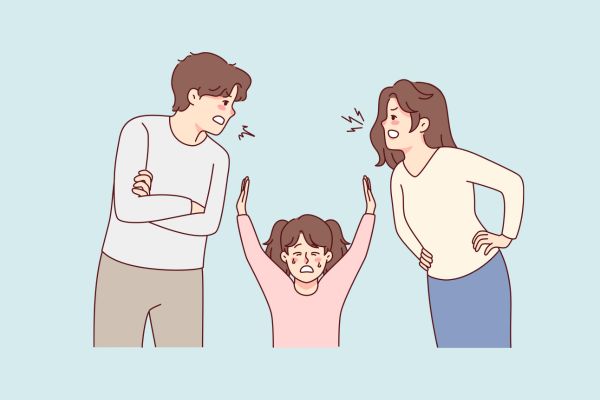Resolution No. 01/2024/NQ-HDTP: What behaviors between husband and wife are considered domestic violence according to the new guidance?
What behaviors of spouses are considered domestic violence according to the new guidance in Resolution 01/2024/NQ-HDTP?
Based on Article 4 of Resolution 01/2024/NQ-HDTPP guiding divorce at the request of one party as specified in Clause 1, Article 56 of the Law on Marriage and Family 2014 as follows:
Divorce at the request of one party as specified in Clause 1, Article 56 of the Law on Marriage and Family
1. “Spouses engage in domestic violence” means spouses engage in behaviors specified in Clause 1, Article 3 of the Law on Domestic Violence Prevention and Control.
2. “Serious violation of the rights and obligations of spouses” means violation of the provisions of the Law on Marriage and Family regarding the rights and obligations of spouses, leading to serious infringement on the legitimate rights and interests of the other party.
Example: A spouse squandering family assets.
3. “The marriage falls into a serious condition, cohabitation cannot be prolonged, the purpose of marriage is not achieved” means falling into one of the following cases:
a) There is no marital love, for example: spouses do not love, respect, care for, or help each other; spouses live separately, neglect their spouse;
b) Spouses engage in adultery;
c) Spouses insult each other, causing harm to dignity, honor, reputation, mental damage, or physical injury or harm to each other’s health;
d) Inequality in rights and obligations between spouses; disrespect for the freedom of belief and religion of the spouse; failure to assist and facilitate each other in development.
Thus, based on the above guidance, spouses who engage in domestic violence exhibit the following behaviors:
- Torture, mistreatment, beating, threatening, or intentional acts harming health and life;- Insulting, taunting, or other intentional acts offending dignity and honor;- Forcing to witness violence against others or animals to cause psychological pressure;- Neglect, lack of care; failure to nurture and care for family members who are children, pregnant women, women raising children under 36 months, the elderly, the disabled, those unable to care for themselves; failure to educate children;- Discrimination based on appearance, gender, sex, capability of family members;- Obstructing family members from meeting relatives, forming lawful and healthy social relationships, or other acts aimed at isolation and continuous psychological pressure;- Obstructing the implementation of rights and obligations in family relationships between grandparents and grandchildren, between parents and children, between spouses, between siblings;- Disclosing or spreading information about the private life, personal secrets, and family secrets of family members to offend honor and dignity;- Forcing a spouse to engage in unwanted sexual acts;- Forcing to perform obscene acts; forcing to listen to sounds, watch images, read obscene or violent content;- Forcing to marry, divorce, or obstruct lawful marriage or divorce;- Forcing to get pregnant, have an abortion, select the sex of the fetus;- Appropriating, destroying family common property or the private property of other family members;- Forcing family members to study or work excessively, contributing financially beyond their ability; controlling family members' assets or income to create a state of material, mental, or other dependency;- Isolating or detaining family members;- Forcing family members to leave their legal residence unlawfully.

Resolution 01/2024/NQ-HDTP What behaviors of spouses are considered domestic violence according to the new guidance?
When is one entitled to file for unilateral divorce?
Based on the provisions of Article 56 of the Law on Marriage and Family 2014, unilateral divorce (divorce at the request of one party) is applicable in the following cases:
- When a spouse requests a divorce, and conciliation at court is not successful, the court shall grant the divorce if there are grounds that the spouse has engaged in domestic violence or severely violated the rights and obligations of a spouse, making the marriage fall into a serious condition, cohabitation cannot be prolonged, and the purpose of marriage is not achieved.- In the case where the spouse of a person declared missing by the court requests a divorce, the court shall grant the divorce. The court shall grant the divorce if there are grounds that the spouse has engaged in domestic violence, seriously affecting the life, health, and spirit of the other party.
What must be done if divorced spouses want to re-establish the marital relationship?
Pursuant to the provisions of Article 9 of the Law on Marriage and Family 2014:
Marriage registration
1. Marriage must be registered and conducted by a competent state agency in accordance with this Law and the law on civil status.
Non-registration of marriage as stipulated in this clause shall not have legal value.
2. Divorced spouses who wish to re-establish the marital relationship must register their marriage.
Thus, divorced spouses who wish to re-establish their marital relationship must register their marriage.
LawNet